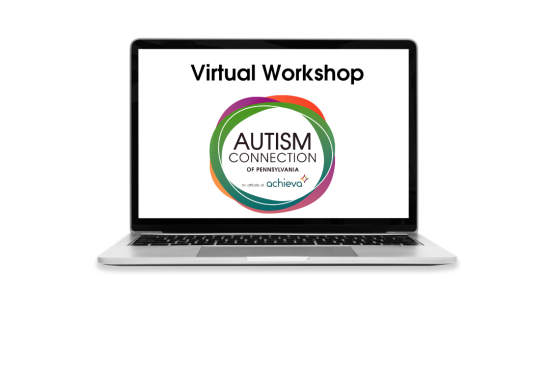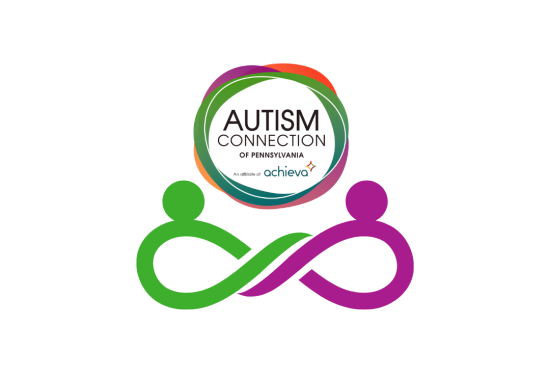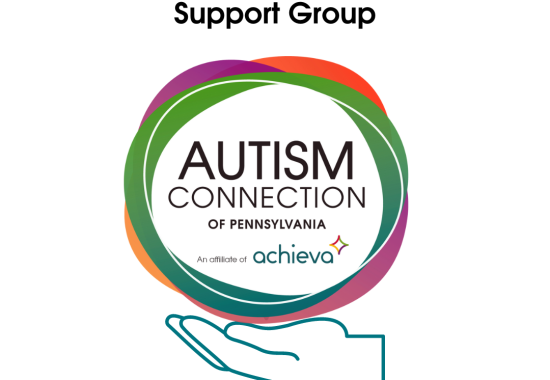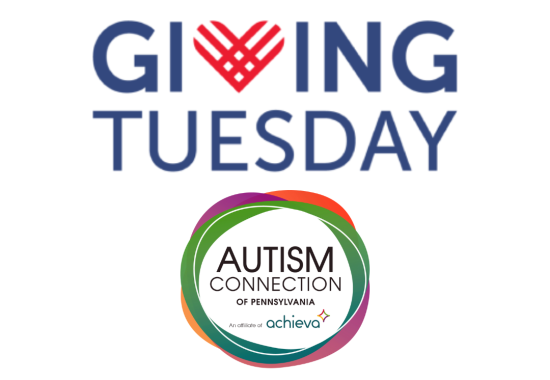Tag: Autism support
Autism Community: Fewer Words, More Action
Psychologist and author, Dr. Ross Greene, states, “Children do well when they can.” This notion recognizes that when children have their needs met, their behaviors eventually fall into place. This applies to all of us. We do well when we can.
We expect, somehow, for families in crisis to embrace their situations with unconditional positive regard. People are not getting what they need. They are in crisis. We must work together so we can all move forward. A parent took time to answer questions for Autism Connection — which was not an easy task considering the the events of any day can be unpredictable, unmanageable and of colossal magnitude — things that often go without consideration.
What is the single most important service lacking for your child at this stage?
Since my son just turned 18, I would have to say any and all adult services are lacking. There is not an appropriate day program for him currently available once he graduates. Social security is one denial after another, even though it is the only means for him to have any of his own money. I am fortunate that I have a pretty solid knowledge base of what to expect, what is available and not available, so I can’t imagine what all of this is like to someone going in who is completely new to this.
It’s important to note that services are lacking for all ages. Most daycares are not equipped for children with behavioral and extra needs. Preschools have waiting lists. Find someone to look after my son for a date night? Forget it. Most social skill programs are full, or not a good fit for the most affected.
Do people underestimate safety concerns?
Unfortunately, yes. The obvious concern is water safety. Every time I see a news story about a child drowning, I wait to hear that the child had autism. I’ve also seen countless parents ask about any assistance to build a fence. Our kids like to wander, and sometimes have no ability to gauge personal safety. Fences are expensive and having any sort of funding to alleviate the cost would help so many. It is incomprehensible to me that charities deny funding for this most basic safety tool, despite parents with lived experience asking for it over and over.
Because autism is often an “invisible disability”, I still have to hold my son’s hand when we’re out in public and he is 5’8″. He has frequently taken food and drinks from strangers, and other than wearing noise-canceling headphones; nothing outwardly indicates that he has a disability. Fortunately, we have mostly been met with kindness when this happens, but a few times we haven’t. I worry about our safety, as a family, if we encounter someone who doesn’t understand.
What factors keep you from going into the community?
The world in general is not sensory friendly. I plan ahead, sometimes doing a dry run, for anything that is new. My husband and I will often drive separately, so if someone has to leave with our son, one can leave while the other stays. It’s actually gotten harder to go out the older he gets. His disabilities are harder to hide, and the only reason we would want to do that is because people are cruel and judgmental. We mostly stick with a handful of “safe” places, and rarely deviate from them.
Can you make a wish list of supports and services that would help your family?
- Qualified caretakers and adult care, for sure. I can’t stress enough how disconnected I feel from my husband and friends because I don’t have an experienced person to watch my son. I just want one night every month or two to try to be out, stress free, with adults. I just don’t have that.
- Day programs for the most profoundly impacted autistic people. One that really considers all needs, from social connections, meals, cool activities, and general safety and specialized medical support for seizures and other incidents, are critical. My son has had pica for most of his life, so things like houseplants, art, and cleaning supplies pose a risk to him regardless of his adult age. That’s one reason that competitive employment or random community settings are hazardous to him without lots of support around.
- Funding for business startups: Totally wish list idea, but grants and/or special loans for parents or caregivers who have business ideas for their loved ones with disabilities. I have dreams of opening up a business where my son and others like him could do meaningful work, but start up costs are prohibitive.
- Flexible employment for parents and caretakers: I also wish more employers would understand that parents do want to work. We talk about how those with disabilities are under or unemployed. That goes for their parents too. I would love nothing more than to work a full time job and contribute financially to my household, but because of my son’s ever increasing needs, I can either only work part time, or wish for the unicorn well-paying, work from home job, that would understand if I need to take a break if my son is in the hospital.
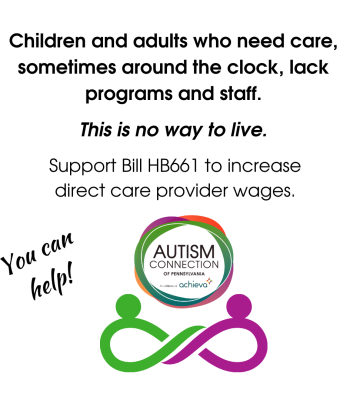
What’s the hospitalization about?
Our son has epilepsy which frequently co-occurs with autism. This is complicated as he cannot tell us if he feels a seizure coming on (an aura) and cannot tell us how medications are affecting him at all. Also since he is nonspeaking, we need to have eyes on him at all times since we cannot just yell “Hey, Jackson (not his real name) are you okay?” to check on him, and have him answer. He has been hospitalized several times following 911 calls and ambulance rides, which he also cannot communicate during to participate in assessments. Just last month, he was on a ventilator due to a seizure. Many families like ours live with this kind of daily stress, and unexpected terror during episodes. There is not enough research or help to support any of our kids or our families.
Is there access to doctors, dentists, and other health professionals who specialize in autism?
There are not a lot of medical professionals experienced with or specializing in care for autistic adults. There are some that you find by word of mouth, if you’re lucky. At this point, I’d say I’ve had the best luck just strong-arming my way into offices we already go to. My tip is to go through the front desk staff. They always know. By asking a lot of questions and being super friendly, I’ve gotten appointments with an oral surgeon for my son’s wisdom teeth, and at my dentist for regular cleanings. I’ve been able to extend his time at his pediatrician’s office as an accommodation. But I also started to talk with my own doctor to see if they would be willing to take on my son as a patient as a backup for when he ages out. There are no “autism ready” doctors that I know of, so I’m making my own network.
How do you feel about disability services neglecting your son’s needs, such as refusing to create meaningful day programs outside of competitive employment?
It makes me really angry. The super cynical side of me wonders if my son doesn’t matter to society as a whole because he isn’t “contributing”, in the classic sense, that the people in charge find most important – maybe because that is what makes them feel most important – their jobs. Giving people like my son – and there are thousands in PA we do not see because they are isolated at home – what he needs is expensive and takes creativity and caring, and no one is willing to have programs like that.
We have senior centers and adult day programs for elderly people who also have care needs – so this feels very discriminatory. People call day programs “segregated” but nobody will be more segregated than my son when he is stuck at home once school ends.
How does your son feel when he’s out of school for prolonged periods? What, if any, behavioral changes happen during those times?
He definitely gets frustrated, bored, and will sometimes act out. I’m only one person, and I can’t give him the kind of attention, structure, and activities that school can. We have another child who also needs to be cared for and entertained, and my husband works extra time, since I can’t contribute financially to the best of my abilities. So I’m trying to be a one-woman show. I think we all get burned out from that.
How do you practice self-care?
The short answer is I don’t. I can’t pick up and leave for a relaxing weekend or girls’ night out. There are places that offer respite for parents, but don’t provide childcare, so how are we supposed to take advantage of that? On school days, I do get a little bit of time to myself, so when I’m not cleaning, doing housework, or working (I work from home part time), I work out in our garage gym. My husband built it during the pandemic, and it is my one sanctuary.
How many other families would you guess you are in contact with who share your thoughts and feelings about this?
I’ve been on several day program tours with other families from school, and we’re all in the same boat. We all feel that none are appropriate for what our kids need. There are a lot of parents of kids transitioning to adulthood that just feel lost.
I am also a member of online parent groups and have been over the past 16 years. There is a tremendous amount of unmet needs there, just like we have at my house. Who is going to listen to people who can’t influence politics (no money or power), who can’t donate to a big charity and have strings pulled, and who have shrinking social networks due to staying home to keep people safe? We are a large but powerless population.
It’s exhausting when someone who doesn’t know you, your family, or your situation says that every decision you make is wrong. Whether it’s about what therapies you choose to use, school to attend, wording to describe your loved one’s diagnosis, we can’t seem to make the right decision. At the end of the day, my husband and I are trying to raise our son to be as healthy as possible, while keeping him safe. It’s increasingly difficult to do that when those who don’t know our situation, or want to acknowledge how severe of a disability autism can be, are making decisions for us.
I’d like to encourage caregivers, family friends, anyone who loves a family with profound autism, to contact their local government representatives. If you can, take your person with autism with you. They need to see what we are dealing with. They need to know that the solution is not one size fits all. We are struggling. We need more support. We need more funding. We need others to stand with us and help us.
The autism community — the entire autism community — is in crisis. This is not about levels, it’s about human beings who need help. We are beyond awareness and acceptance. We are beyond words. It’s time for action.
You can help by contacting your Pennsylvania legislator to support the Proposed PA Budget Increase for Intellectual Disability and Autism (ID/A) Services System. Compose your message here.
We recognize that much more needs to be done, that there are gaping holes in services and programs in all ages and stages in the autism community and that people are in great need. This is one step people can take in Pennsylvania.
Black History Will Forever Be My History – By Joseph Smith, Autism Connection of PA Trustee
This month, we celebrate Black History. It is a time to remember the innovation and accomplishments of trailblazers in the United States. A lot of people are inquiring about why Black History Month is important. Here are some reasons from my point of view.
- All of American history needs to be learned regardless of skin hue. There is too much division in this country. As a result, people of my hue are not getting recognition for the inventions and accomplishments they have made.
- Studying Black History reminds us of the struggles of our ancestors so that we can better understand what we are going through and what they went through.
- It opens us up to more issues that need to be discussed. We live in a critical age where we need to have uncomfortable conversations about race and disability.
- We can make a difference by learning about race in our society. By learning Black History, we can better use Theory of Mind by being more sensitive to the needs of everyone.
- The most important part of all is that Black History can’t be relegated to just one month. There are so many individuals breaking barriers every minute that need to be recognized.
Black History Month is canonical to American History. By studying Black History, we can obtain knowledge that can prevent us from repeating deleterious events. Together we can break barriers.

Joseph Smith
Autism Connection of PA Trustee; Giant Eagle employee, and Professional Photographer
Late Diagnosis Autism Support Group Meeting
Virtual support group meeting for adults diagnosed on the autism spectrum later in life. This meeting is open to people who believe they are autistic, and don’t know where to turn for help.
Giving Tuesday 2023
The Meaning Behind Giving Tuesday
Giving Tuesday, (#GivingTuesday) began in 2012 in response to the commercialization of the holiday season. It is a powerful reminder that the true essence of the season is about giving. This global day of generosity encourages people to contribute to charitable organizations, volunteer their time, and lend a helping hand to others.
Autism Connection of Pennsylvania: A Lifeline and Hub for Families and Adults
Autism affects millions of families worldwide. Autism Connection of PA is a non-profit dedicated to supporting autistic people and their families in Pennsylvania. Founded in 1996, Autism Connection has been at the forefront of the autism community, offering support, information, and advocacy.
The Impact of Giving Tuesday: Autism Connection of PA’s Key Initiatives
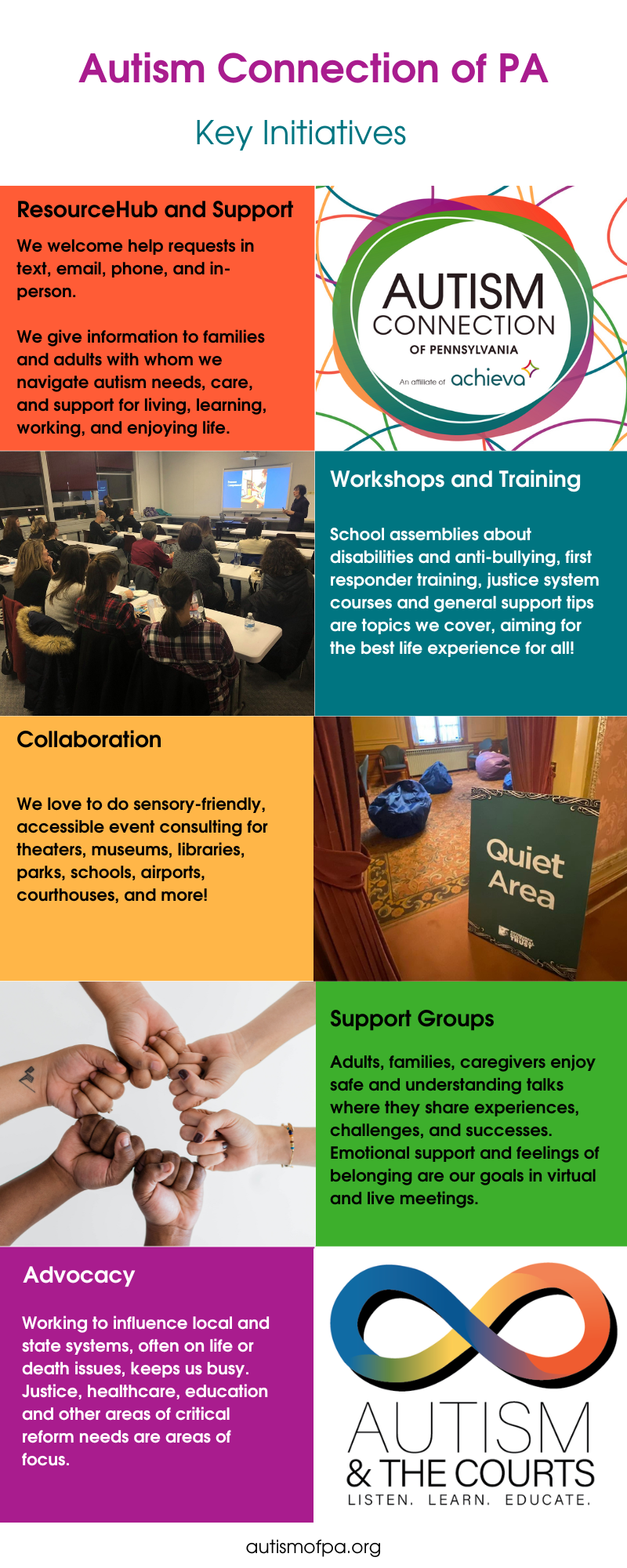
Get Involved
As Giving Tuesday approaches, Autism Connection of Pennsylvania relies on the generosity of individuals, businesses, and communities to continue our vital work. Donations on this special day can make a significant difference in the lives of those affected by autism. Involvement doesn’t always translate into monetary donations. Sharing your experience, connecting with others, offering help, or simply spreading the word about our work can have a huge impact.
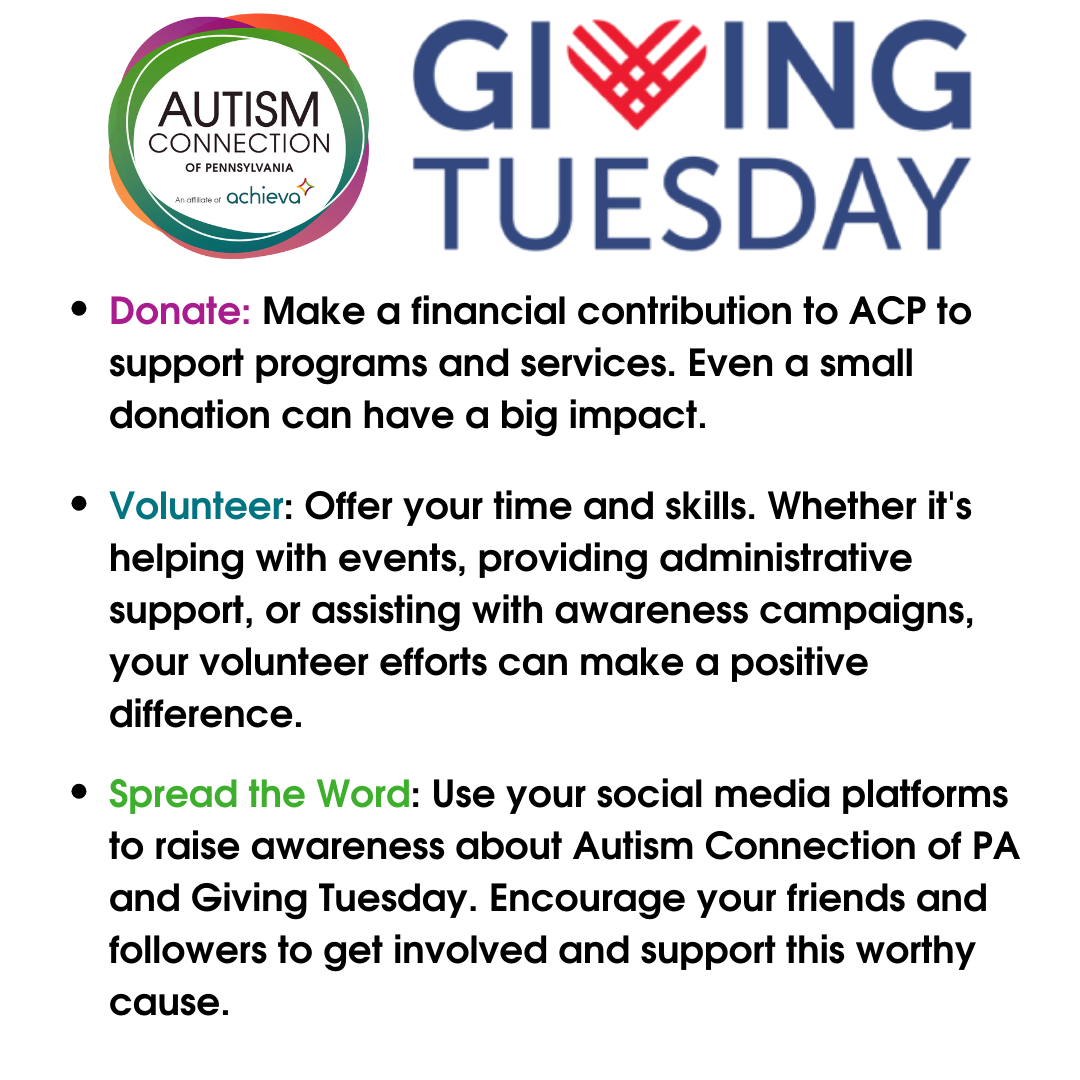
You Can Make a Difference
On Giving Tuesday, let’s rally support Autism Connection of Pennsylvania and the community we serve. By donating, volunteering, and spreading the word, we can contribute to a brighter and more inclusive future. Together, we can make a difference and embody the true spirit of the holiday season – the spirit of giving.
SNAP: Bridging Friendships by Lydia Wayman and Zachary Miller
What is SNAP?
SNAP, officially known as the Spreading Neurodiversity Acceptance Project for Social Engagement, was conceived by Zachary A. Miller. This project was born out of a heartfelt mission: to establish an inclusive platform where neurodivergent and neurotypical individuals could stand together on equal ground, fostering a sense of unity and acceptance.
At its core, SNAP is all about community engagement through a diverse array of events and activities. They extend warm invitations to people of all backgrounds, embracing the rich tapestry of human experiences. From crafting a captivating mural that celebrates neurodiversity to organizing engaging egg hunts and immersive camp days, SNAP consistently delivers on its promise of inclusive joy.

Crucially, the magic of SNAP doesn’t stop at its events; it begins right at the heart of their organization. The dedicated leadership team, led by individuals like Lydia, plays a pivotal role in shaping the project’s vision and executing its mission. Lydia exemplifies the spirit of SNAP, where inclusivity, understanding, and creativity intersect.
Lydia’s Perspective
I’m an autistic adult who has spent my whole life in the Pittsburgh area. I have been involved in autism advocacy work since 2009, speaking at conferences, writing for a wide variety of publications, and working with organizations to develop courses, training programs and other resources. I’ve made incredible, lifelong friends through this work. But none of them live close enough to see in person more than once or twice a year at best. As involved as I am with the autism/autistic community, I still lack many local connections and social opportunities.
I heard about SNAP through an ad in the Autism Connection weekly newsletter in early 2023. It was about painting a mural celebrating neurodiversity that would hang in Benedum Hall. I love all kinds of arts and crafts and creative expression, so it sounded like something I’d enjoy. But I was nervous — I didn’t know who would be there or where Benedum Hall was, and I’ve never painted in any formal capacity. I wouldn’t have pursued the opportunity if my mom hadn’t also seen the ad and nudged me. I reached out to Zach by email to ask some questions that made me feel less anxious, as it helps if I know what to expect.

Lydia Wayman
He responded quickly and with his typical friendly tone that makes everyone feel welcome and accepted. Come to a SNAP event and meet him, and you’ll see exactly what I mean!
We worked on the mural over several weekends, and I loved every minute of it. The artist who led us was a perfect fit for the project. The group had a wide range of ages and support needs, and she gave everyone jobs to do and presumed competence while still providing instruction and individual support. I liked that we were all helping and not just being handed the fun parts. It made it a true group effort, and the final product looks incredible.
After the mural, Zach asked if I wanted to join the SNAP leadership team. I readily accepted his offer and have served in the role of an autistic co-liaison since last spring, attending SNAP leadership meetings and help to plan and run events.
What Makes SNAP Distinct?
There are a few things that make SNAP different – why it’s a group I want to be a part of. A big reason for me is the inclusive nature of everything we do. Our events are designed to be as inclusive as possible, and we invite all ages, parents and siblings included. Everyone just gets treated like an individual. I’ve connected with all sorts of people at our events, and despite the leadership team being half of my age, they are fantastic people to work with and have fun with.
I’ve tried to make local connections with the disability community through activity-based groups in the past, but often, I felt forced to choose a side – either I had to be a participant with a disability, or I could be an organizer. Because I get overwhelmed easily, participating in groups can be hard, so I often prefer to help out. I think part of it is just that I know what’s going on, but I also have some unique skills to offer. But choosing to get involved as an organizer usually meant working with a team of people who aren’t used to making accommodations or allowing for support needs. Also, it meant not getting to enjoy the fun parts of the event.
With SNAP, I don’t have to explain what I can and can’t do, why I do or don’t need something. I don’t have to choose a side – I can just be myself, use my skills to help others, and have fun.
Join the fun!
Do you want to be a part of the fun? Many of our events are free to everyone! For more information throughout the year, sign up for our email list at the link HERE. We hope to see you in the future!
Late Diagnosis Autism Support Group Meeting
Virtual support group meeting for adults diagnosed on the autism spectrum later in life. This meeting is open to people who believe they are autistic, and don’t know where to turn for help.

